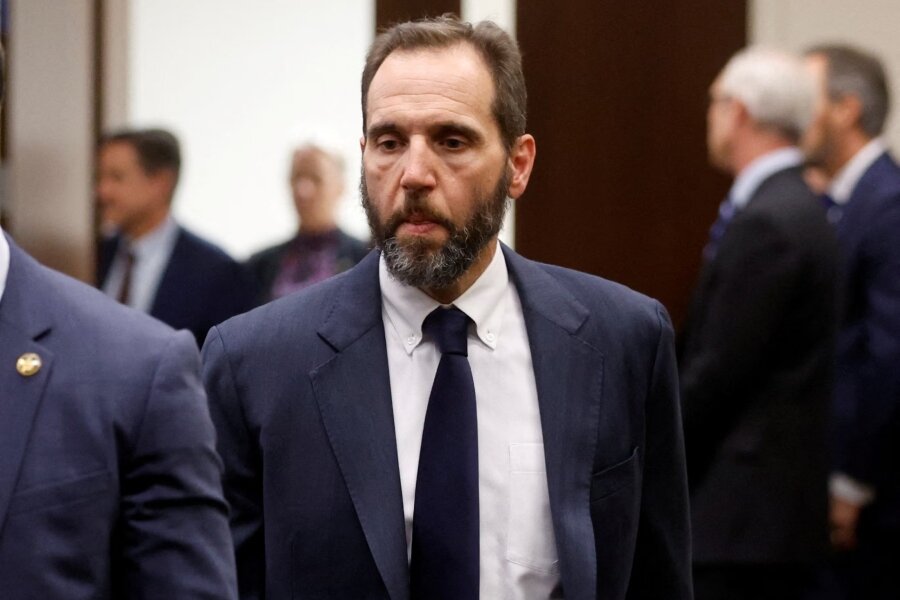The U.S. Supreme Court will need to further explore the issue of presidential immunity, former special counsel Jack Smith said in his newly released report.
A majority of Supreme Court justices ruled in 2024 that presidents have immunity from criminal prosecution for official acts, but not unofficial ones.
“Under our constitutional structure of separated powers, the nature of Presidential power entitles a former President to absolute immunity from criminal prosecution for actions within his conclusive and preclusive constitutional authority. And he is entitled to at least presumptive immunity from prosecution for all his official acts. There is no immunity for unofficial acts,” the majority said.
Smith was prosecuting President-elect Donald Trump until shortly after the 2024 election, after which federal prosecutors dropped charges against Trump given his election win. The prosecution was based on acts prosecutors said Trump committed while president but were unofficial, including allegedly obstructing the certification of electoral votes from the 2020 election.
“The Supreme Court’s decision raises several issues about the scope of presidential immunity that the lower courts, and ultimately the Supreme Court, would likely have had to address before the prosecution could have proceeded to trial,” Smith said in the new report.
Justices named some “core constitutional powers” for which presidents have absolute immunity, including granting pardons and removing presidential appointees. The court’s decision “left undefined the full scope of that category,” Smith said.
Justices also said that presidents have “at least presumptive immunity” for their remaining official actions.
“That holding left unresolved whether, at some future point, the Court will determine that absolute immunity is required for that category of official acts as well. It also left unresolved the manner of applying its test for overcoming presumptive immunity: i.e., that the government must ’show that applying a criminal prohibition to that act would pose no dangers of intrusion on the authority and functions of the Executive Branch,'” Smith wrote, quoting from a separate court decision
Smith also said that the justices’ conclusion—that presidential immunity precludes the introduction of evidence of immune official acts, even in a prosecution for unofficial conduct—raised questions.
Particularly because, in a footnote, the majority stated that in a hypothetical prosecution for bribery, “of course the prosecutor may point to the public record to show the fact that the President performed the official act.”
That and other similar statements “create uncertainty regarding which types of evidence of official acts can be used and which cannot,” Smith said.
Federal prosecutors, upon receiving the ruling, reanalyzed their case against Trump and decided that his alleged crimes did not fall under presidential immunity, according to Smith.
The final report was delivered to Attorney General Merrick Garland, who appointed Smith. Special counsels are required by law to give the attorney general a report explaining their prosecution decisions. Garland opted to make the report public.
Smith defended prosecuting Trump, saying prosecutors believed they were serving the public interest by protecting the integrity of the electoral process and the peaceful transfer of power between presidents.
Share your thoughts by scrolling down to leave a comment.













